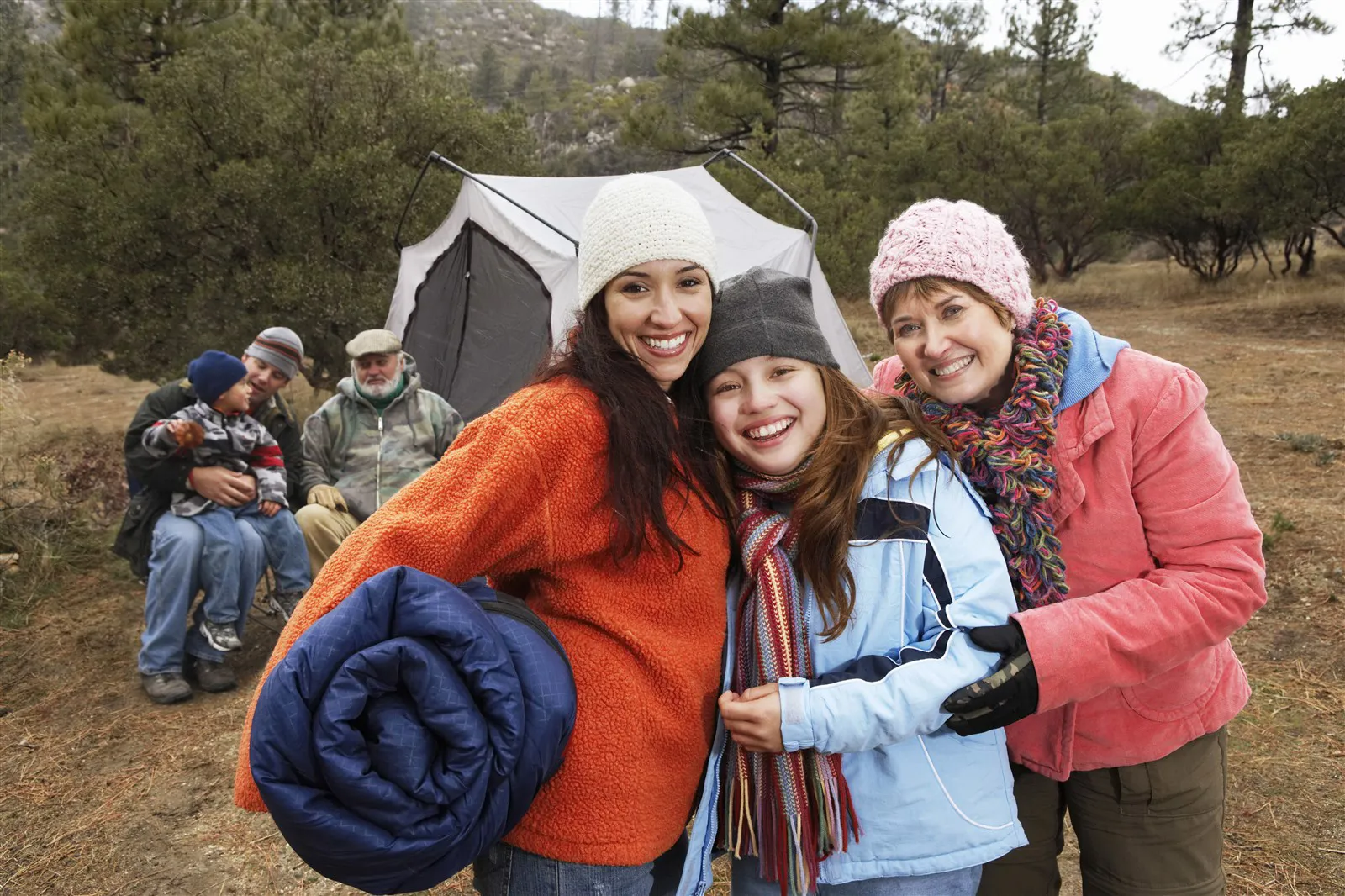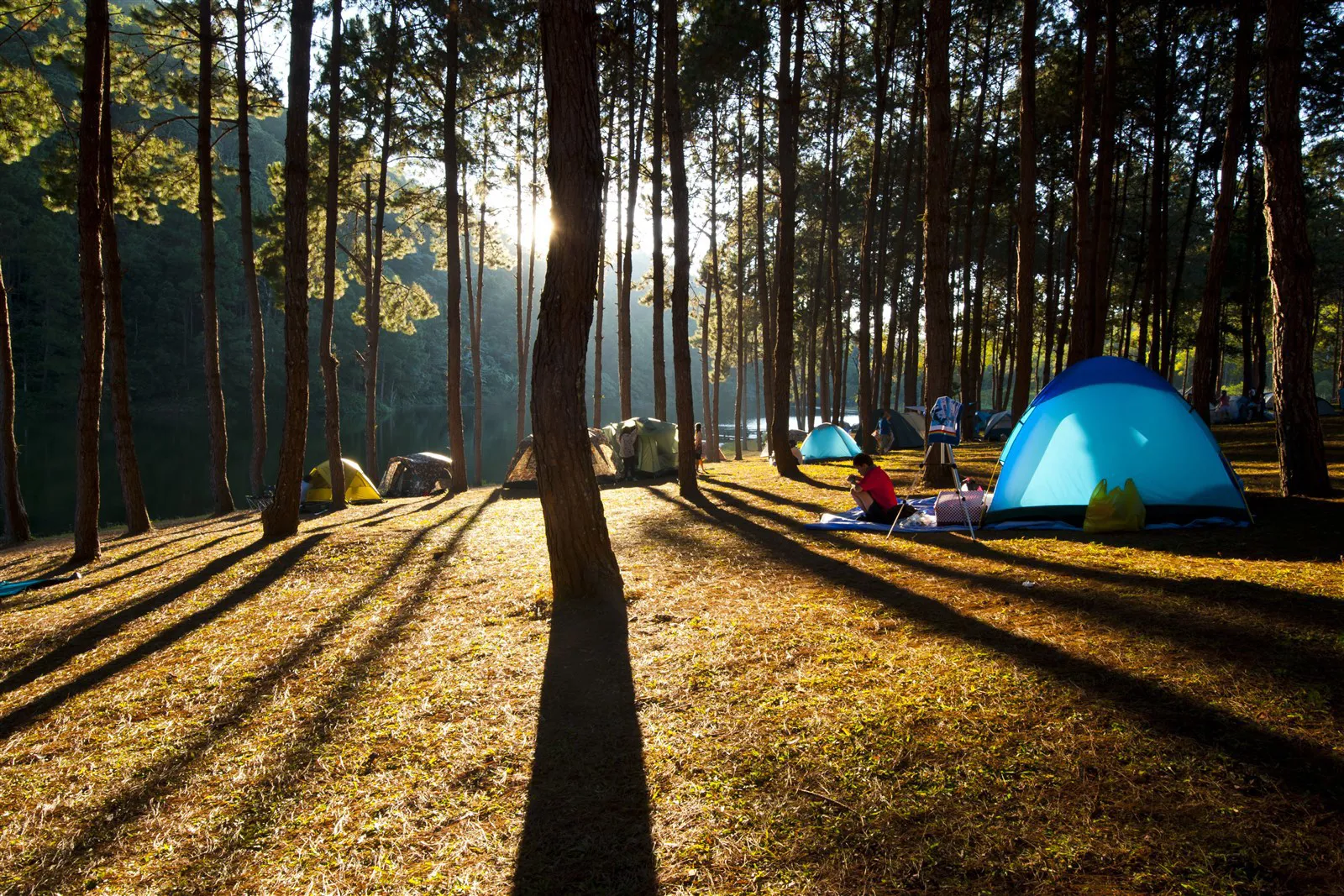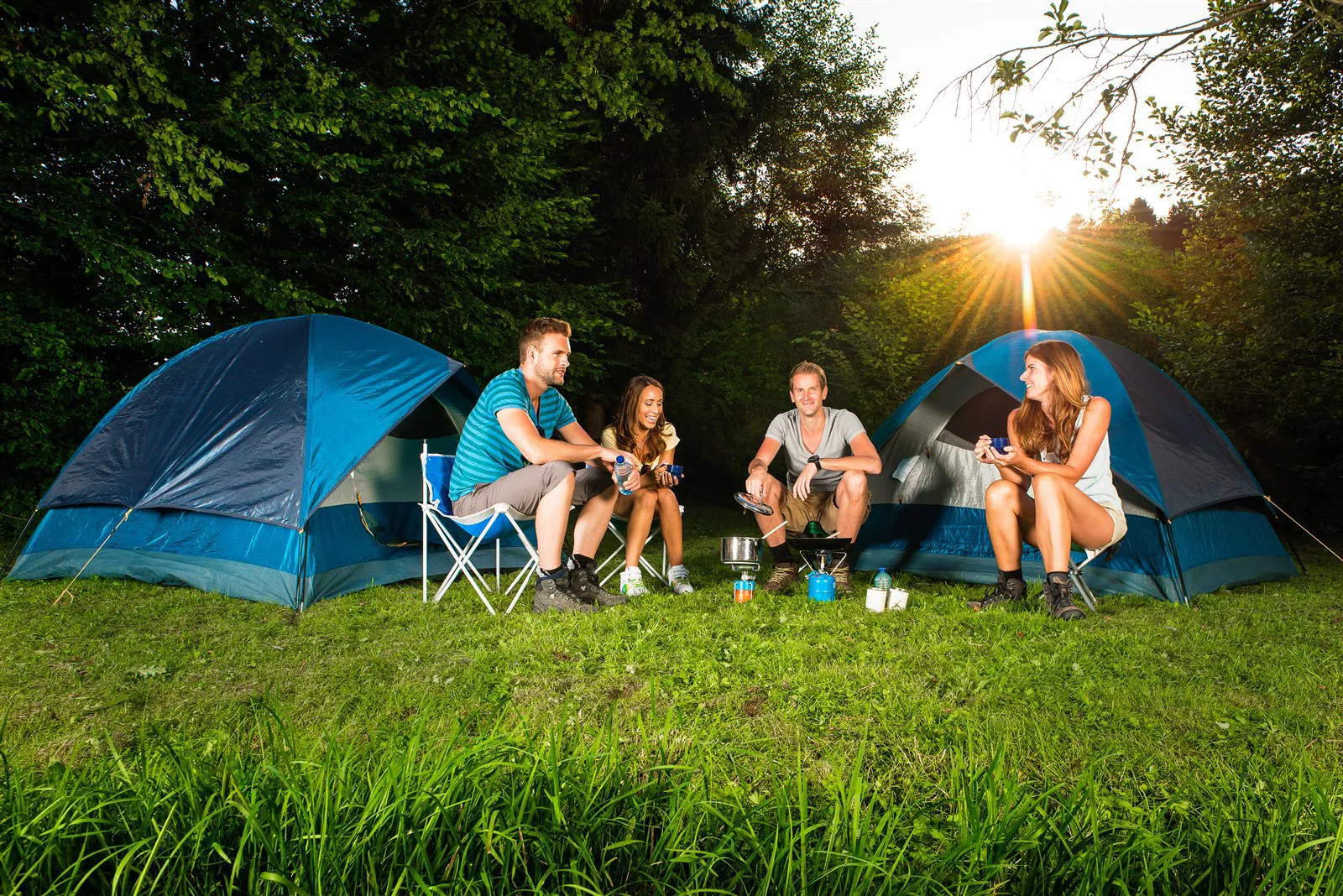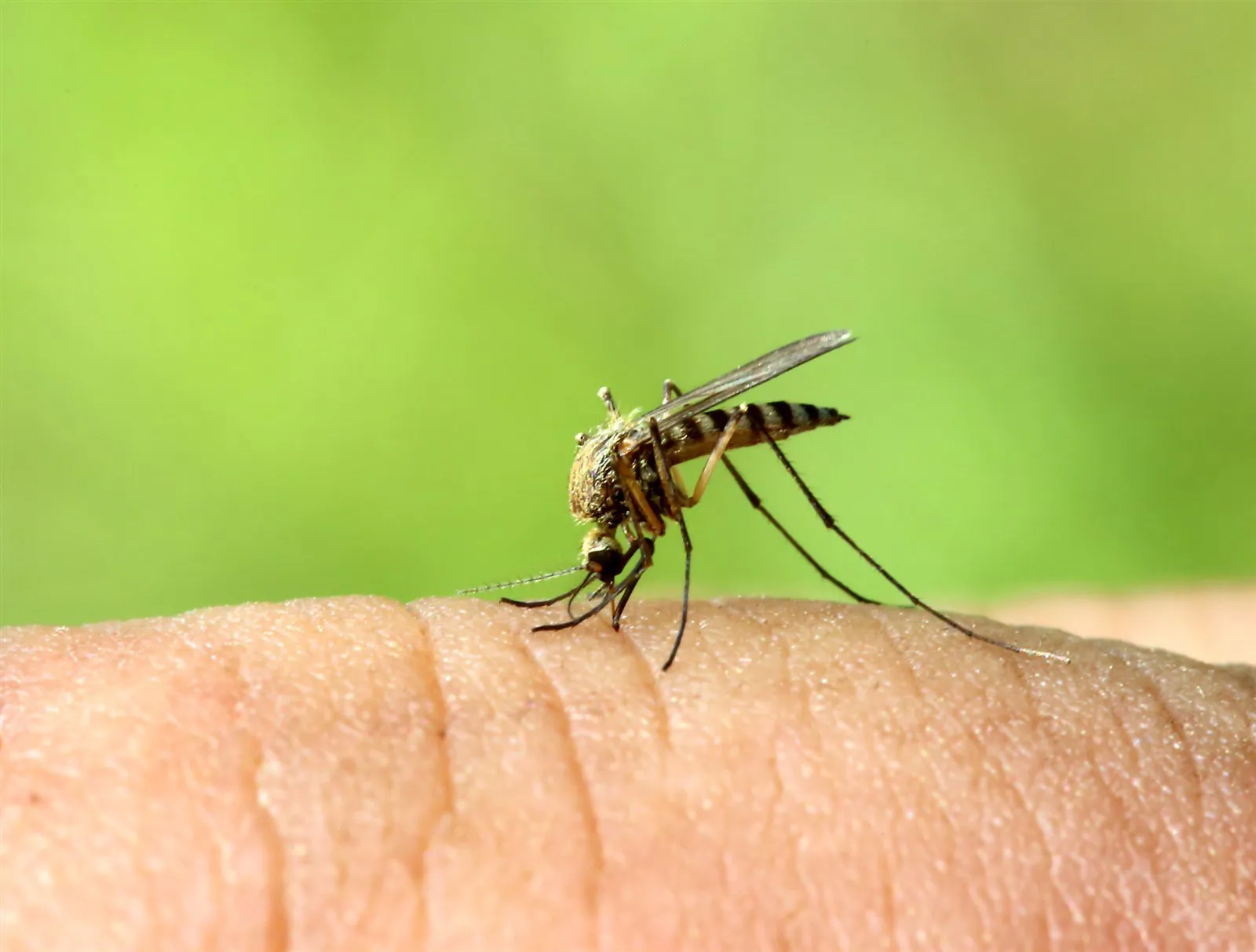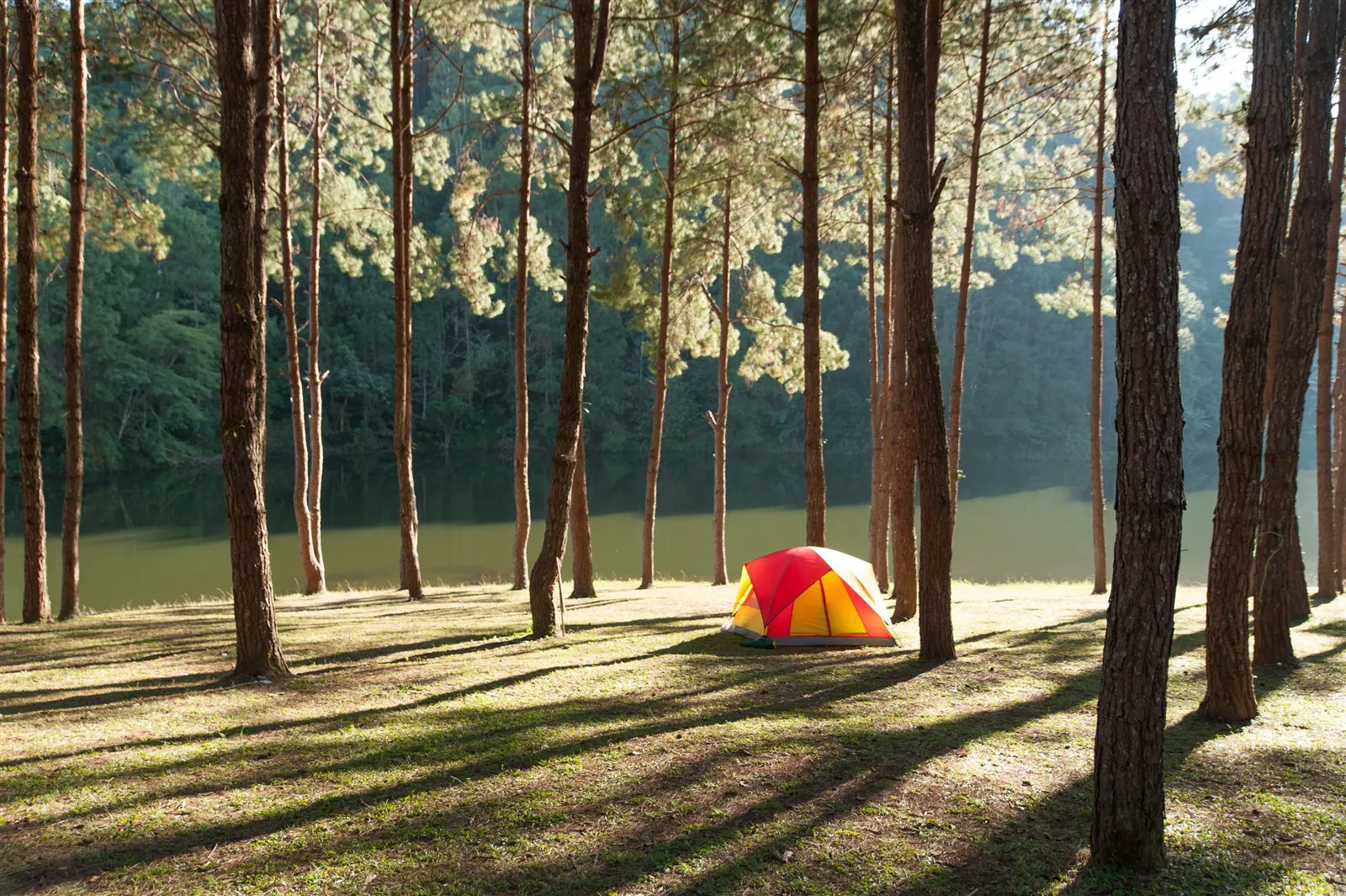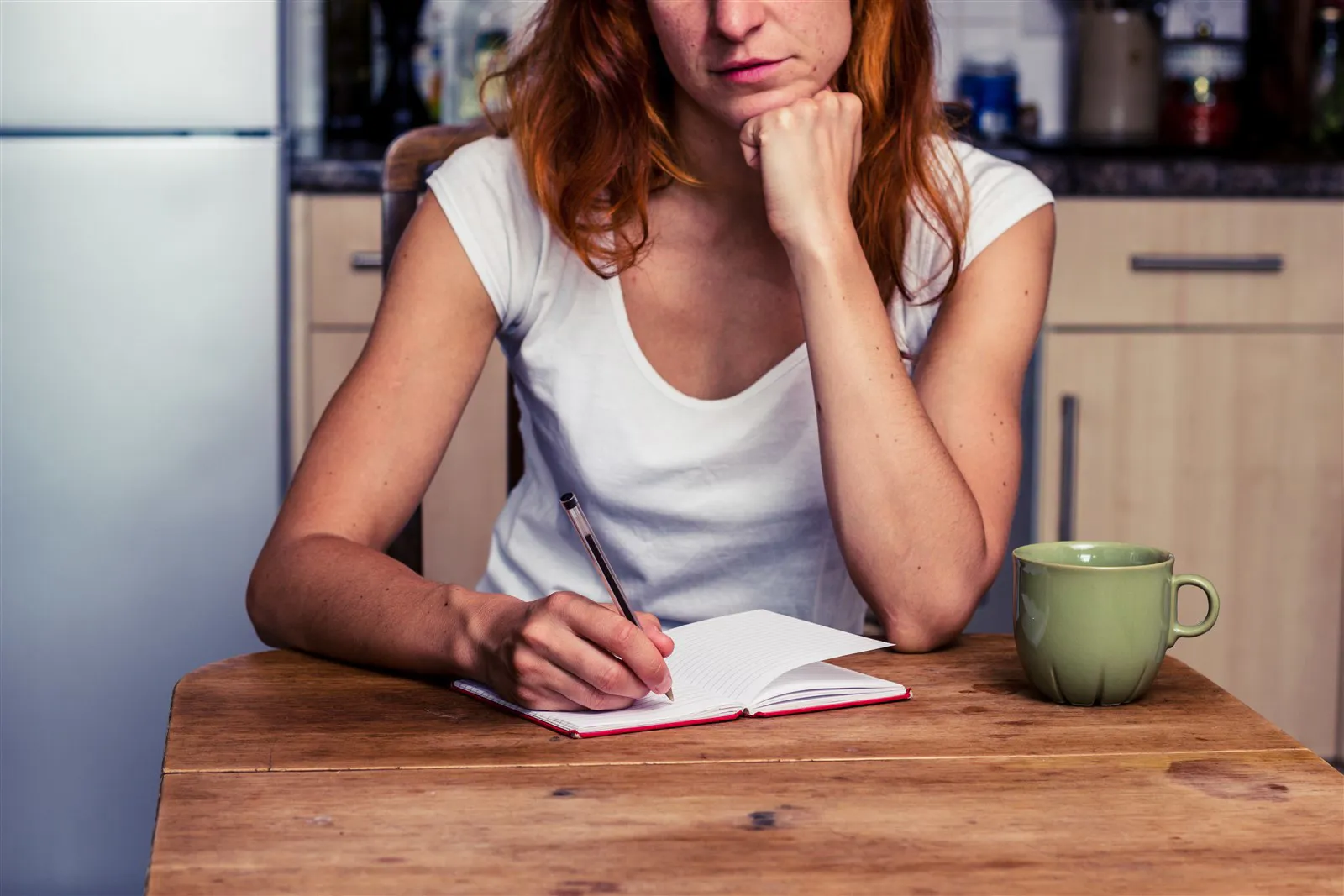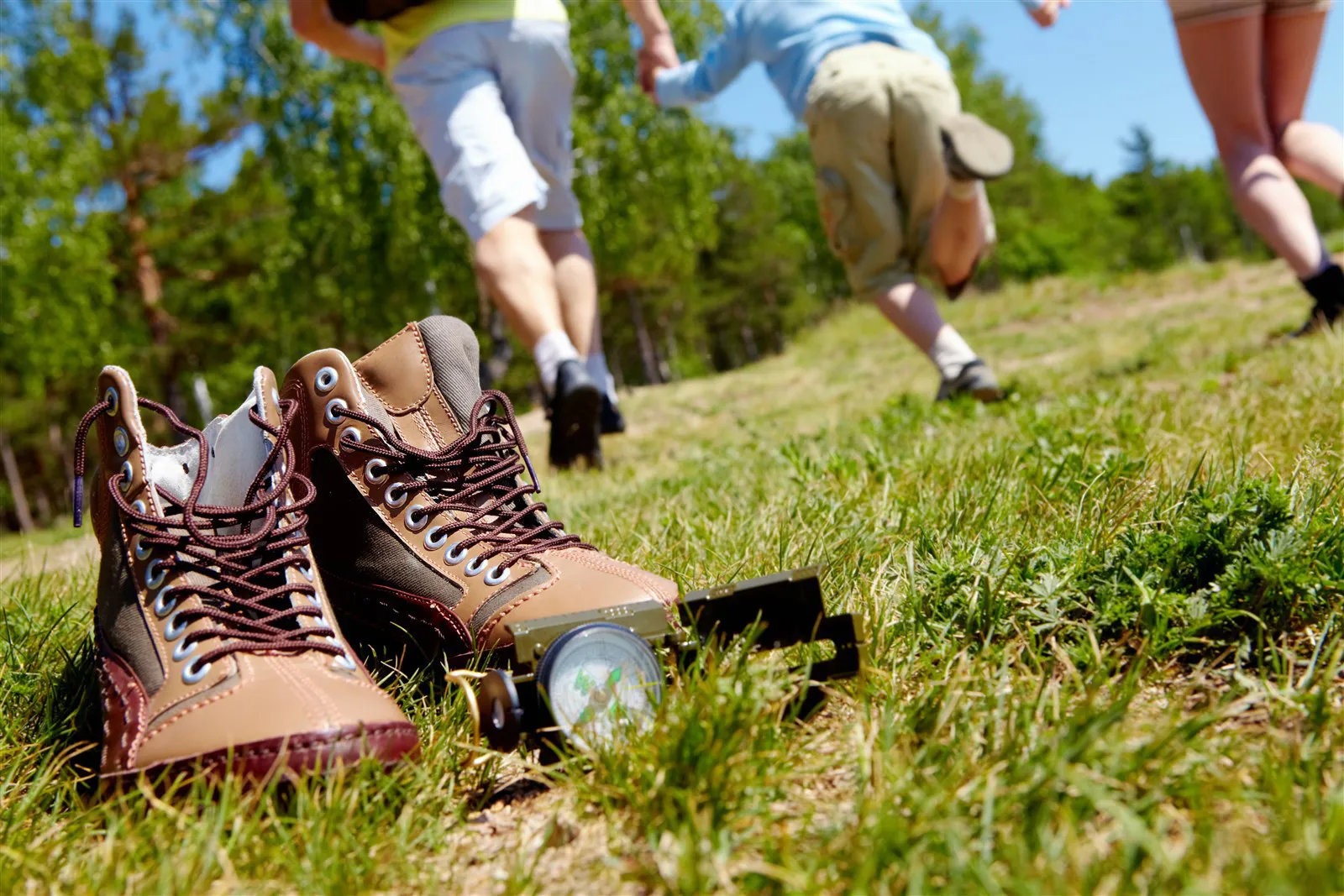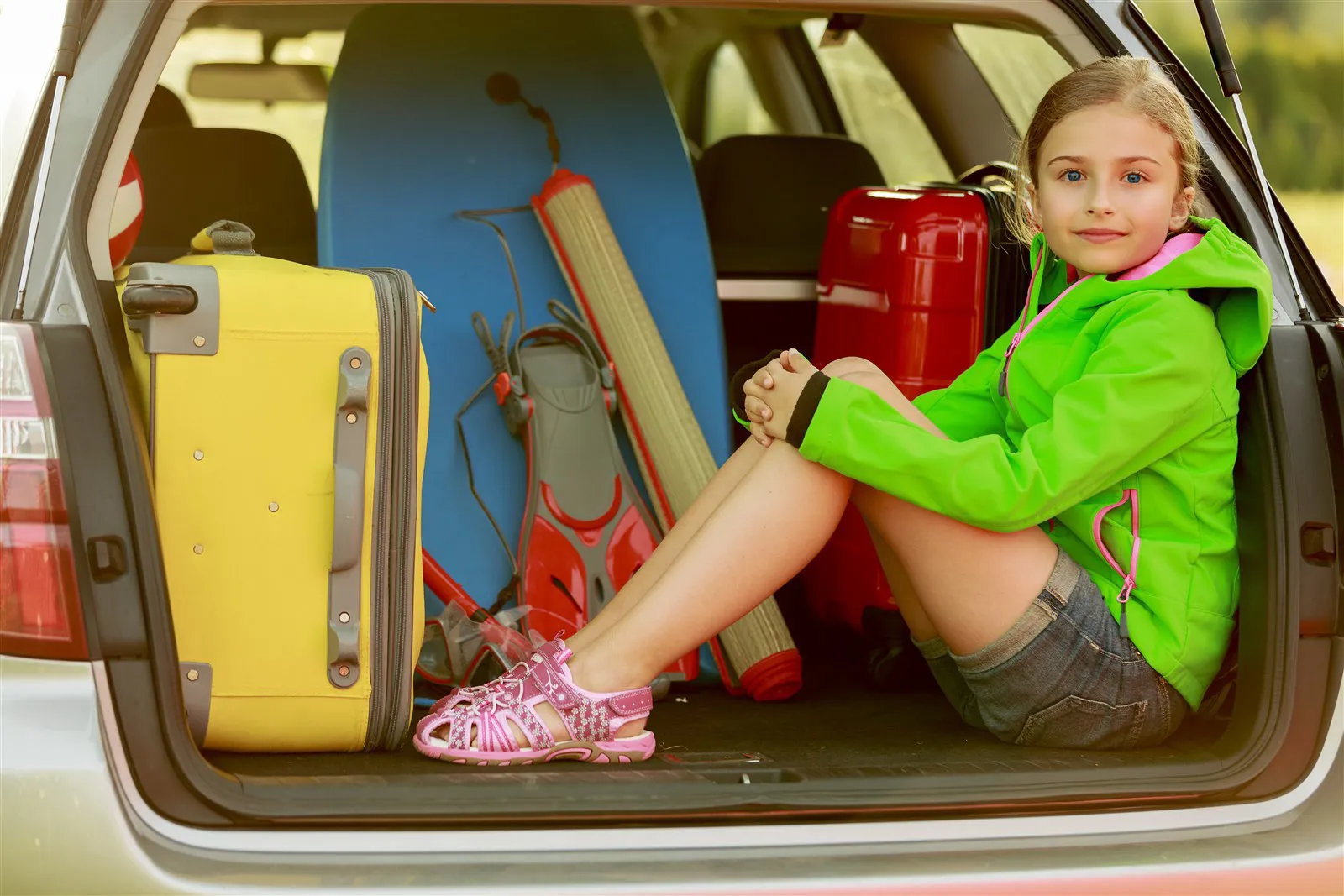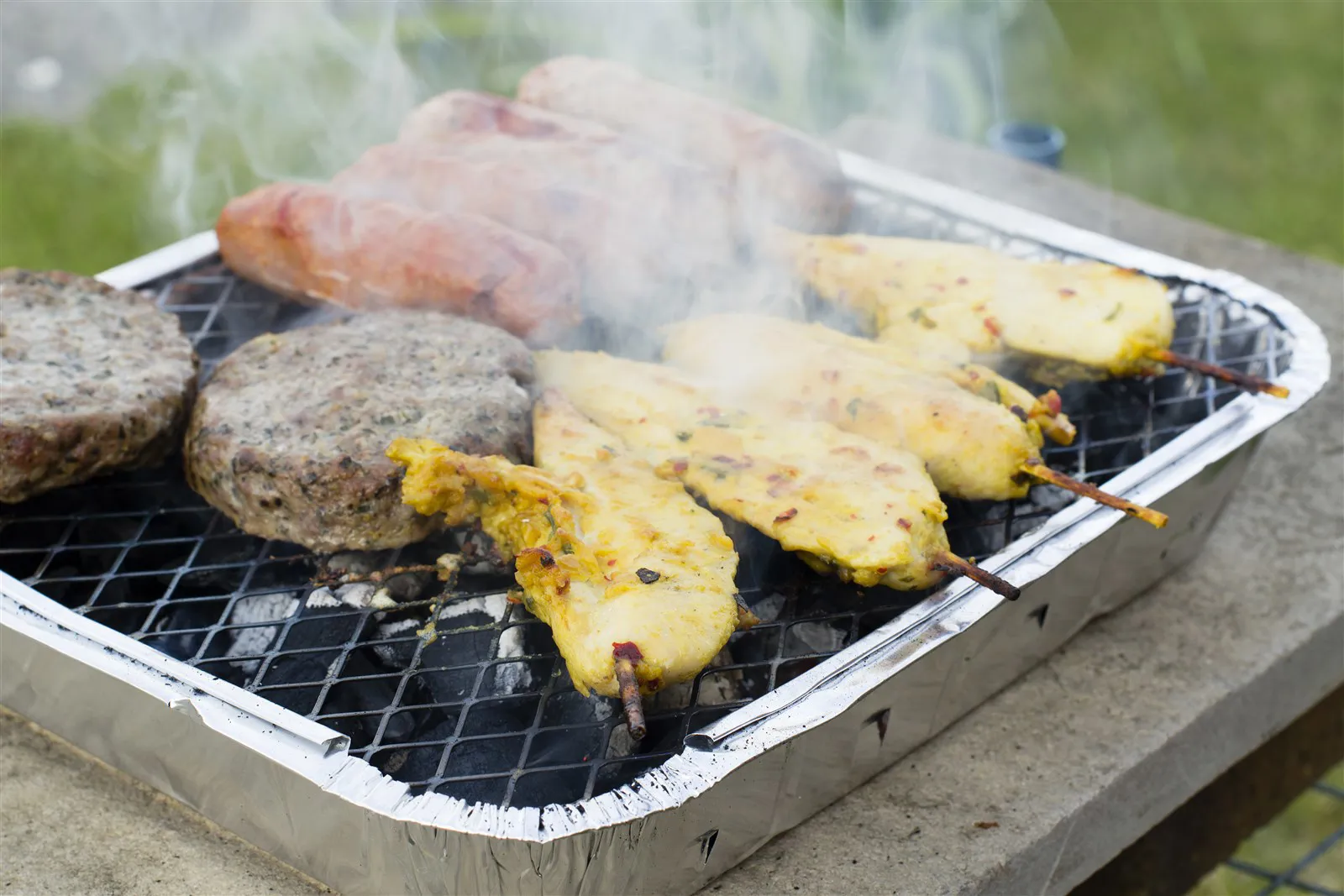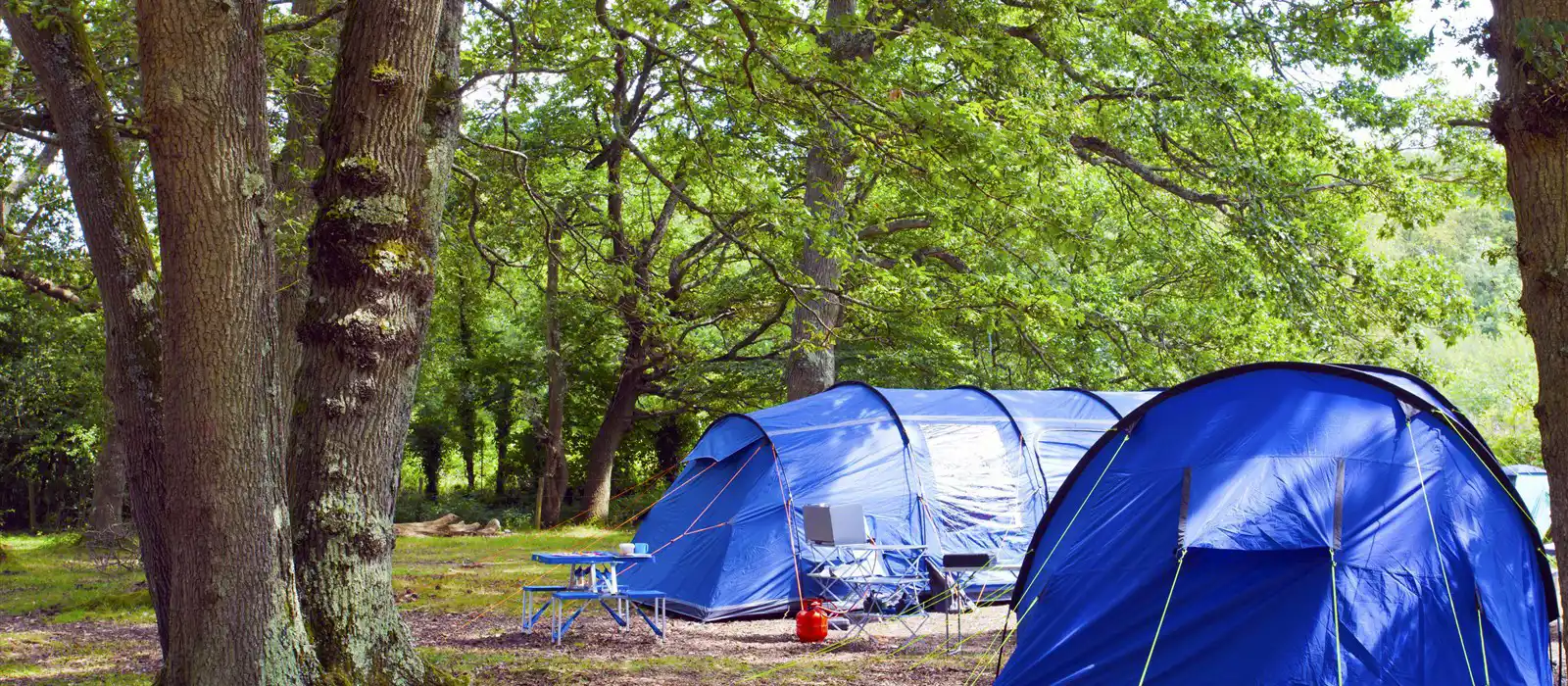
Camping tips, hacks and tricks
Whether you're an experienced pro or a first-timer, these useful camping tricks, hacks and tips will come in handy to get you back in touch with nature!
Tips for first-timers
- Always follow the rules of your particular campsite or camping location (and know what they are before arriving)
- Respect your fellow campers by keeping noise levels down and remaining within your own pitch space
- Invest in a good-quality tent over a cheap, poor-quality one that has a greater risk of leaking or being damaged
- Ensure you have at least one spare set of dry clothes
- Be prepared for medical emergencies with a first aid kit and emergency contact numbers
- Check all your camping equipment (even new equipment) is in good working order before setting off on your trip
- Practice setting up your tent and other camping gear before your trip so you can save time by being adequately prepared for setting up at your destination
- Taking photos of how your tent comes out of the bag can help with getting it back inside easily
- For your first trip try to borrow camping gear from family and friends or get items cheaply second-hand rather than spending lots of money on equipment you may only use once (or not at all)
- If you have to pitch on a slope, place your tent at the top of the slope rather than the bottom to reduce the risk of flooding
- Give yourself enough time to reach your camping destination so you can pitch your tent when there is still daylight
- Don't arrive too early at busy campsites where pitches may not be available until the afternoon
- Ensure you have plenty of bin bags and/or waste storage containers with lids for tidying up rubbish and waste
- Make sure not to cook inside tents or near other camping equipment that could catch fire
- Politely ask other campers for help or advice if you are struggling or unsure about something
- Greet neighbouring campers but don't be overly friendly – many people value privacy during their camping trips
- Don't set up camp close to others if you can avoid doing so – this enhances everyone's privacy and makes for a more peaceful camping trip
- Don't forget toilet roll wherever you decide to camp
- Avoid bringing too many non-essential items (some are fine for your personal comfort and entertainment but it's easy to get weighed down with items you won't use or have space for in your accommodation)
- Get a tent that is the right size for your needs. For instance two people may want to choose a three-person tent instead of a two-person tent in order to benefit from extra space for storing gear inside.
- Avoid camping close to animals in order to cause minimal disturbance to them
- If possible, don't settle on the first pitch location you find but instead look for one with even ground and good shelter from the elements
- Choose somewhere close to home for your first camping trip – this way you can go back and fetch something if you've left it behind or easily get home if you decide camping is not for you. Camping in your own or a friend's/family member's garden is also a good way to ease into the camping experience as a trial run
- Don't pitch the tent facing the wind as this increases the likelihood of your tent being blown away
- If travelling by car pack your tent last so you can quickly access it at your destination
- Make a camping checklist that includes all the items you want to take with you – realising you left an important piece of kit at home is very frustrating!
- Assembling a camping supplies storage box can make it easy to prepare for each trip, with just a few extras needing to be packed each time as required rather than gathering everything repeatedly
- After your trip always make sure to clean and properly air your tent before packing it away in order to avoid mildew and an unpleasant smell on your tent
Unexpectedly useful things to take with you
- Duct tape – great for fixing damaged camping gear in a pinch, attaching items to one another, etc.
- String – handy for attaching items together, serving as a clothesline, etc.
- A headlamp and water jug or bottle – shine the headlamp against a bottle or jug filled with water to create a lantern
- Clothes pegs – useful not only for hanging up clothes but also for sealing food packaging and holding lightweight items aloft
- Solar-powered fairy lights – extra lighting in your tent and useful for tying around guy lines to avoid tripping over them at night
- Bin bags – can be used to store dirty clothing and they serve as a waterproof layer inside backpacks or over equipment
- Foam floor tiles – these can be put on the tent floor to enhance sleeping comfort
- Tic Tac containers – useful for storing small amounts of seasonings to reduce carrying weight
- A plunger and bucket – in combination these are a handy portable washing machine if you need to wash clothes during your trip
- Extra batteries – you never know when the current batteries in your battery-operated gear will run flat
- An umbrella – not only useful for keeping campers dry in the rain but can also be used to protect camping stoves or barbecues from the rain, as well as doubling up as a sun shield during hot weather
Staying warm
- Pack a waterproof jacket and trousers to protect inner layers and your body against rain, snow, etc.
- A good pair of waterproof shoes or boots will help keep your feet and socks warm and dry
- Dirt on clothing reduces its insulating properties, so change into clean clothes whenever possible
- To reduce the amount of cold air in the tent when you go to sleep, get inside the tent and close the door 30 minutes to an hour before going to bed
- Bringing the clothes you plan to wear the next day into your sleeping bag will warm them up so you don't have to put on cold clothes in the morning
- It's important to pack several layers of clothing so you can put on or take off clothing as required – sweating makes you cold eventually as the sweat soaks into clothing, thereby reducing its insulating qualities, and your body will cool when sweat evaporates. Several layers of clothing also offer greater insulation than a single layer that is the same thickness
- Don't forget to pack gloves, a scarf and a hat
Dealing with the weather
- Always check the weather forecast at your chosen camping destination a few days in advance of your trip so you can pack accordingly
- If the weather is going to be particularly bad at your camping spot, be prepared to postpone your trip or choose another campsite
- Pitch in an area that is not likely to flood in the event of heavy rains (for instance not by the side of a lake, the bottom of a slope or in a dip)
- Avoid setting up camp in exposed areas as this will increase your exposure to wind and other elements. Instead try to find areas with natural windbreaks (large boulders, hedges, etc.) and/or use manmade ones (other buildings, walls or your own erected windbreak)
- Plan your trips to avoid temperature extremes (for instance freezing conditions during winter) and periods of heavy rainfall
- Opt for a waterproof tent with a waterproof flysheet and groundsheet to keep rain out. Make sure your tent walls and the flysheet aren't touching and don't lean your camping supplies against the walls either as this will reduce the water-repellent qualities of the tent
- Plan a few rainy-day activities to keep you entertained when it's pouring outside – for instance a pack of playing cards, boardgames, puzzles, colouring-in books for kids and so forth
Avoiding bugs and creepy crawlies
- Choose a camping spot with a slight breeze as this will help keep flying insects such as midges away
- Zip your tent up whether you are inside or not in order to keep bugs, creepy crawlies and insects out
- Dispose of leftover food and used food and drink packaging in sealed waste containers or bin bags to make the camp area less appealing to bugs and creepy crawlies
- Clean up any food or drink spillages quickly to avoid attracting bugs and creepy crawlies
- Make sure to pack insect repellent or you can make your own if you wish (there are many homemade insect repellent recipes available online)
- Many insect repellent sprays can be used on clothing too (for instance shoes, cuffs, etc.) to ward away insects
- Wear long-sleeved shirts and trousers or jeans to protect your arms and legs from bites and stings
- Light-coloured clothing is better than dark-coloured clothing which some insects and bugs are attracted to
- Tuck the bottom of your trouser legs into your socks to prevent insects and bugs from climbing inside your trousers
- Try to avoid wet areas and areas with tall grasses as bugs and insects tend to frequent these areas
- Fragranced items such as perfumes or deodorants with a distinct fragrance can attract insects so try to use fragrance-free deodorants, creams and so forth
- Lighting citronella candles around your campsite can help to keep insects and bugs at bay
Taking your foot off the pedal (disconnecting from everyday life)
- If possible, try to avoid doing any work-related tasks and answering work emails or phone calls. Camping should be a holiday away from work, after all!
- If you can't avoid work completely, limit yourself to a set work period each day (such as an hour or two) and dedicate the rest of the day to enjoying your camping trip
- Try to do something new each day that you wouldn't do normally in your everyday life (such as kayak on a nearby lake, enjoy a hike, try to identify local flora and fauna)
Money-saving tips
- Buy camping equipment second-hand or borrow items from friends and family members to avoid shelling out lots of money on gear which you might not want to use again
- When buying camping gear, do so out of season for the best deals
- The high season is the most popular camping season and has the highest campsite costs; choosing to camp during the mid or low season instead will save you money on camping fees
- Have a good-quality cooler bag/box for storing fresh food so it doesn't go to waste
- Plan ahead so you can bring everything (or at least most things) you need with you in order to avoid using shops within the campsite as these are usually more expensive than purchasing the items elsewhere
- Don't settle for the first campsite you become aware of but instead take your time researching different campsites, reading reviews and see which ones offer the best value for money and/or accommodate your personal budget
- Cook your own food rather than eating out nearby or in campsite restaurants or cafes
- Check with local tourist offices or online for discounts on local attractions
- Search online for deals and special offers on campsite rates and book in advance for cheaper rates
- Campsites with fewer or more basic facilities are generally cheaper than those with a variety of onsite facilities
Starting a fire
- If wood-burning fires are allowed in your camping location, use the driest wood you can find (don't damage trees by cutting off branches; instead gather fallen branches and twigs) or bring your own supply – check with the campsite to find out what their rules are regarding lighting fires
- You will need different kinds of wood – small pieces (dry bark, small twigs, etc.) that can act as tinder, larger twigs and then large pieces of wood that will burn for a long time
- Light your tinder (with a match or lighter) and keep adding tinder to the pile as it starts to burn. Blowing at the base of the pile will help the tinder catch fire. Once you have a decent pile of burning tinder you can start to slowly add larger twigs and then small branches, eventually working your way up to large pieces of wood. Be careful not to stack the wood too tightly as air needs to be able to flow through to keep the fire alight
- Ensure any fires are started well away from surrounding debris, overhanging branches, tents and other camping equipment in order to greatly reduce the risk of such items catching alight and damaging or destroying the landscape plus your own as well as others' camping gear
- If you are creating your own fire pit, use rocks around it to make a fire ring
- Keep a spade, bucket of water and a fire extinguisher close to hand in the event you need to quickly put the fire out
- Never leave fires unattended
- If barbecuing (or using gas stoves), always do so in an area that has plenty of airflow in order to minimise the chance of carbon monoxide poisoning. Never cook inside camping accommodation or leave extinguished barbecues inside as they can still emit dangerous carbon monoxide gas several hours after being extinguished
- Cardboard egg cartons filled with charcoal can serve as convenient firestarters
- Always ensure your fire is properly extinguished when you have finished using it. Pour water over it, make sure ashes are scattered and that all parts of the fire are cold before you leave it
Cooking
- Pack just the amount you need for the trip and leave the rest at home to reduce carrying weight and food wastage
- Try to avoid packing too many heavier food items such as tinned foods if you have to carry them a significant distance
- Try to make the majority of your food items that won't perish quickly, as fresh foods can be tricky or a hassle to keep cool
- Freeze as many food and drink substances as you can and then place them in a cooler box or bag ready for your trip – they will keep longer this way
- Remember to bring some lidded containers to store leftover food and/or opened food items for use at a later time
- Always bring at least some bottled water
- Pack a container that can be used to store water at your campsite
- Ensure you have an adequate supply of food and drink as it may be difficult to purchase items quickly if you run out
- Remember to bring items such as a tin opener, bottle opener and corkscrew
- Pack unbreakable plates, cups, bowls, mugs etc. (plastic items will help to keep carrying weight down)
- Always cook outside your accommodation, far away from anything that could catch alight
- Don't store gas stoves or barbecues in your accommodation as there is the risk of carbon monoxide poisoning
- Plan meals in advance so you know exactly what to bring and don't waste food
- It's a good idea to have some easy-meal options when you're too tired or hungry to get involved in lots of preparation. For instance a ready-made picnic for your first day, tinned soup or curry or a home-prepared meal that can be quickly re-heated, couscous that is quicker to prepare than rice or pasta, etc.
Getting a good night's sleep
- Bring earplugs and an eye mask
- Ensure you are adequately warm, with clean and dry bedding and sleepwear
- A hot water bottle and wearing a warm hat in bed is handy for camping in cooler months
- Invest in a good-quality sleeping bag that is appropriate for the season you are camping in
- Place some form of insulation between the floor of the tent and your sleeping bag or other bedding (such as a thick blanket or sleeping mat)
- Avoid drinking liquids right before going to bed in order to reduce the likelihood of needing to go to the toilet in the middle of the night
- If you have to pitch your tent on a slope, ensure your head is angled above your feet rather than having your feet facing up the slope
- Consider camping away from toilets and shower areas. Though camping nearby can be convenient for quick access to them, these areas are the busiest in a campsite and you may be woken up by fellow campers visiting them during the night or early in the morning
Camping with kids and pets
- Be aware of where your children are at all times and have a way to keep in touch with them, such as a mobile phone or walkie talkie
- Don't let children shout, run about, kick balls and so forth close to, in or between camping pitches. Instead they should use designated play areas and keep noise levels within the rules of the camping location
- Ensure children are aware of suitable behaviour that respects fellow campers and that they behave accordingly
- First check that pets are accepted at your chosen camping location before bringing them
- Ensure pets remain under your control at all times, with dogs on their leashes instead of being allowed to roam freely and out of sight
- Always clean up your dog's pooh
- Remember to pack all necessary supplies for your pet, such as food, a water bowl, treats, toys, bedding and medication if needed
- Make sure your pet has a clear identification tag with up-to-date contact details
- Explain to children that they should be extra careful around fires, hot stoves, pans and pots with hot food in them, etc. and keep pets well clear in order to avoid accidents
- Pack entertainment items for kids (such as sporting equipment, colouring-in books, puzzles or boardgames) and don't forget comfort items for younger kids such as their favourite toy or blanket which will help them settle in easier
Other useful tips
- Make sure people know where you'll be going and when you expect to get back so they can alert emergency services if you are not back or out of touch significantly longer than expected
- Charge your mobile phone before your trip and bring it and a charger with so you have a means of communication if needed (gadgets can be charged through electric hook-ups, car chargers, solar power charging kits, etc.)
- Learn how to use a compass and read maps and make sure you bring these items with you on your trip. You never know when your GPS technology may fail and you need to navigate by alternative methods
- Campers may want to sign up for an outdoor camping skills course and/or do lots of research online to gather useful camping skills – being suitably prepared for a variety of situations makes a camping trip much safer and more enjoyable
Ask us a question
Search UK Campsites
Download the Ultimate Camping Checklist
Download our list of everything of you need to remember for the perfect camping trip!
DownloadOther Things to do
Things To Do
These ideas for days out, places to visit and other experiences offer something for everyone.
Browse Ideas